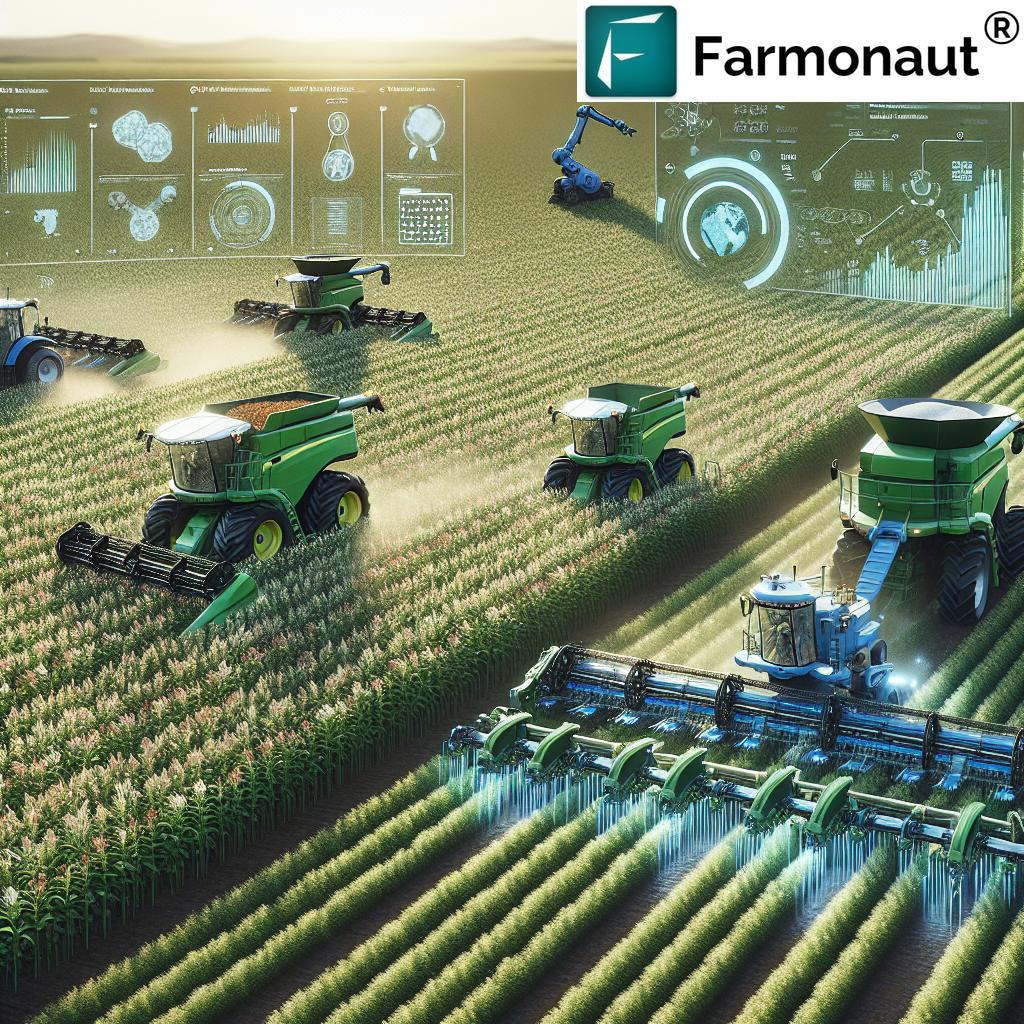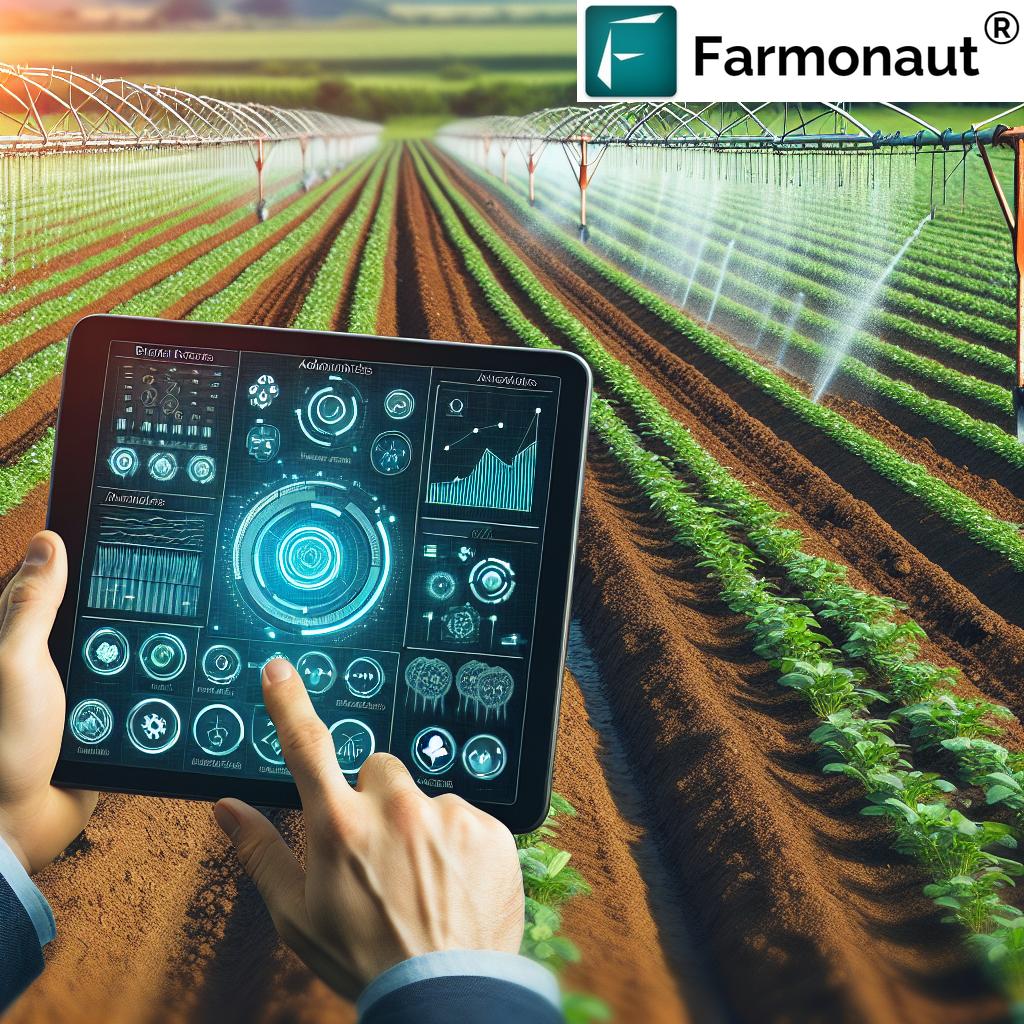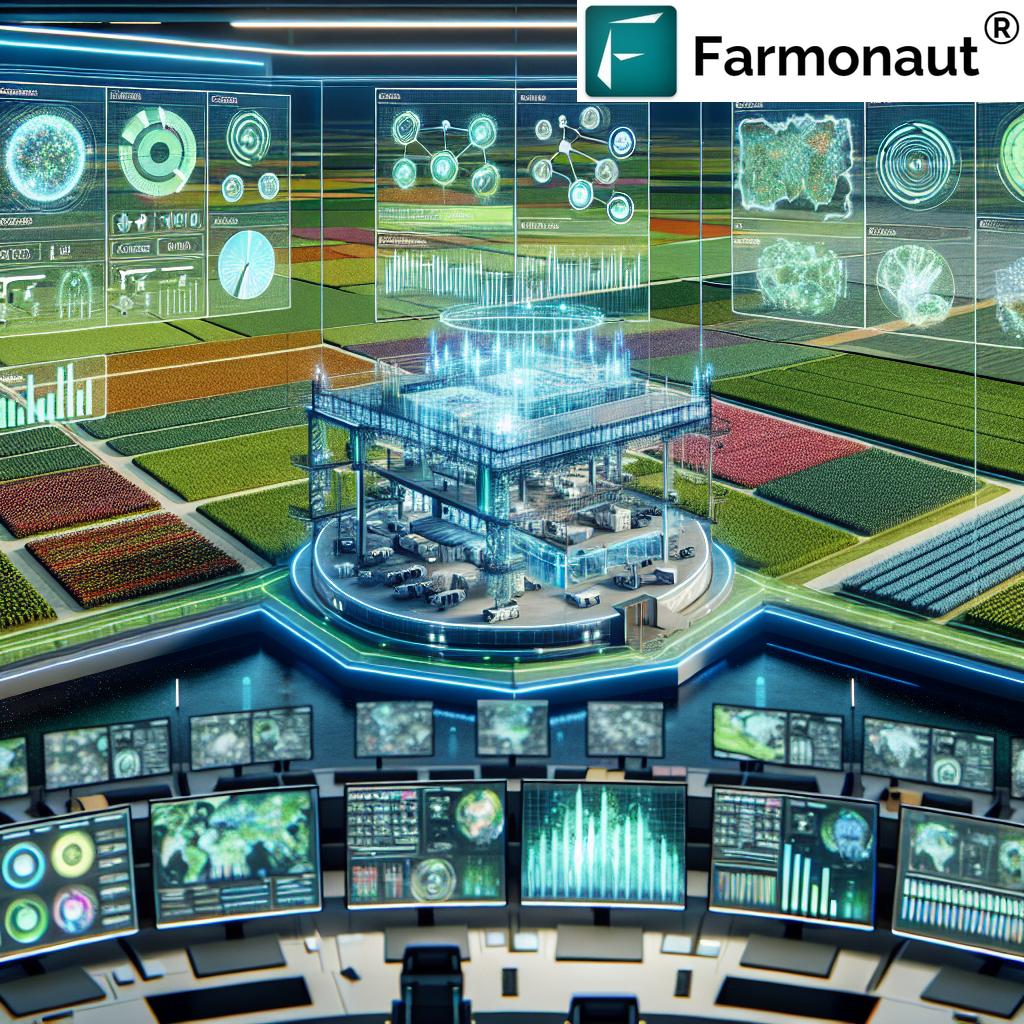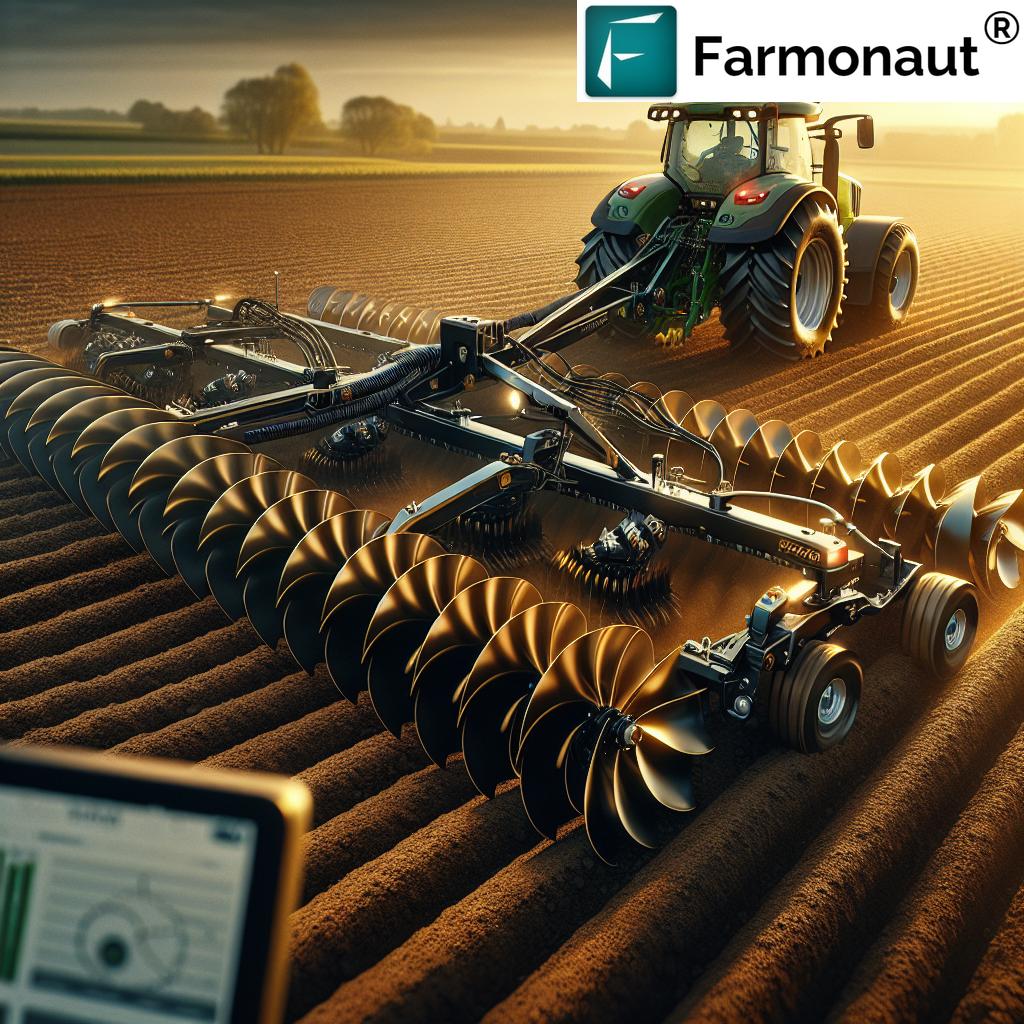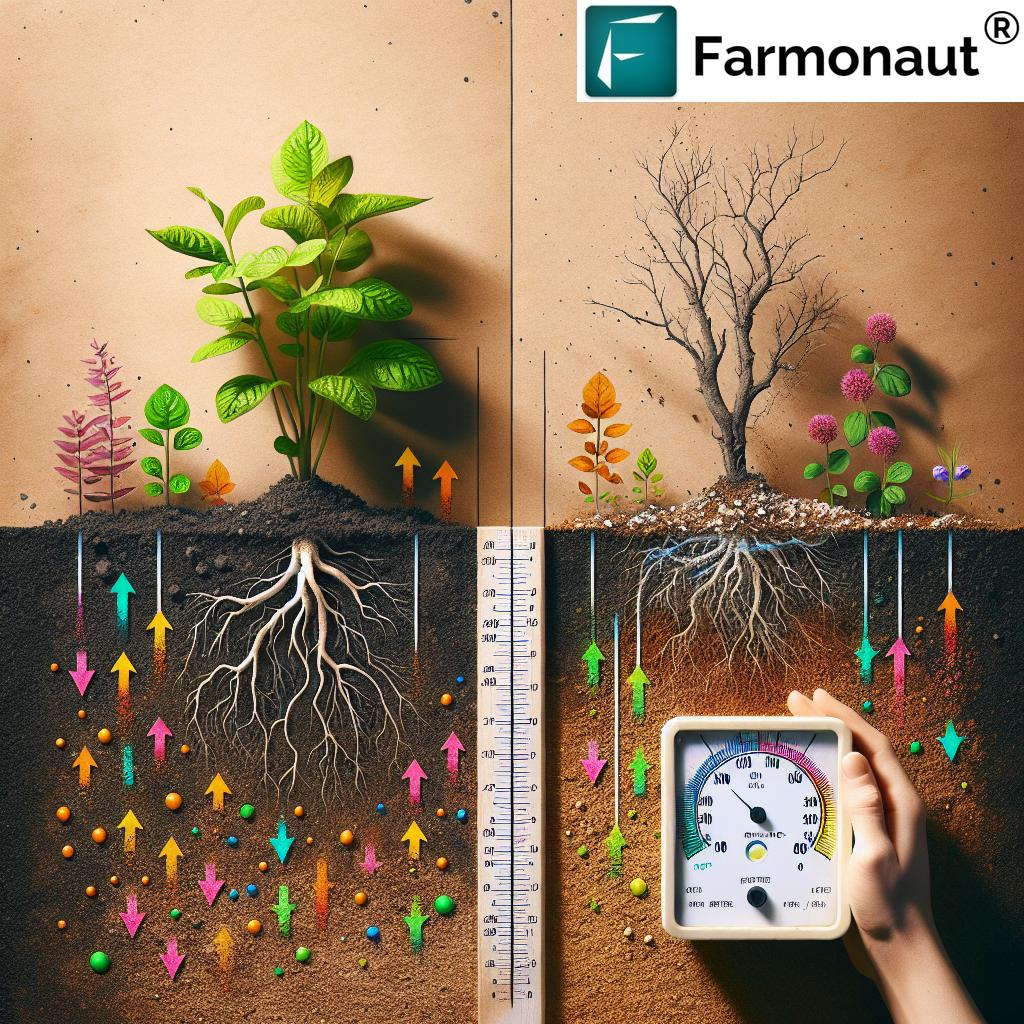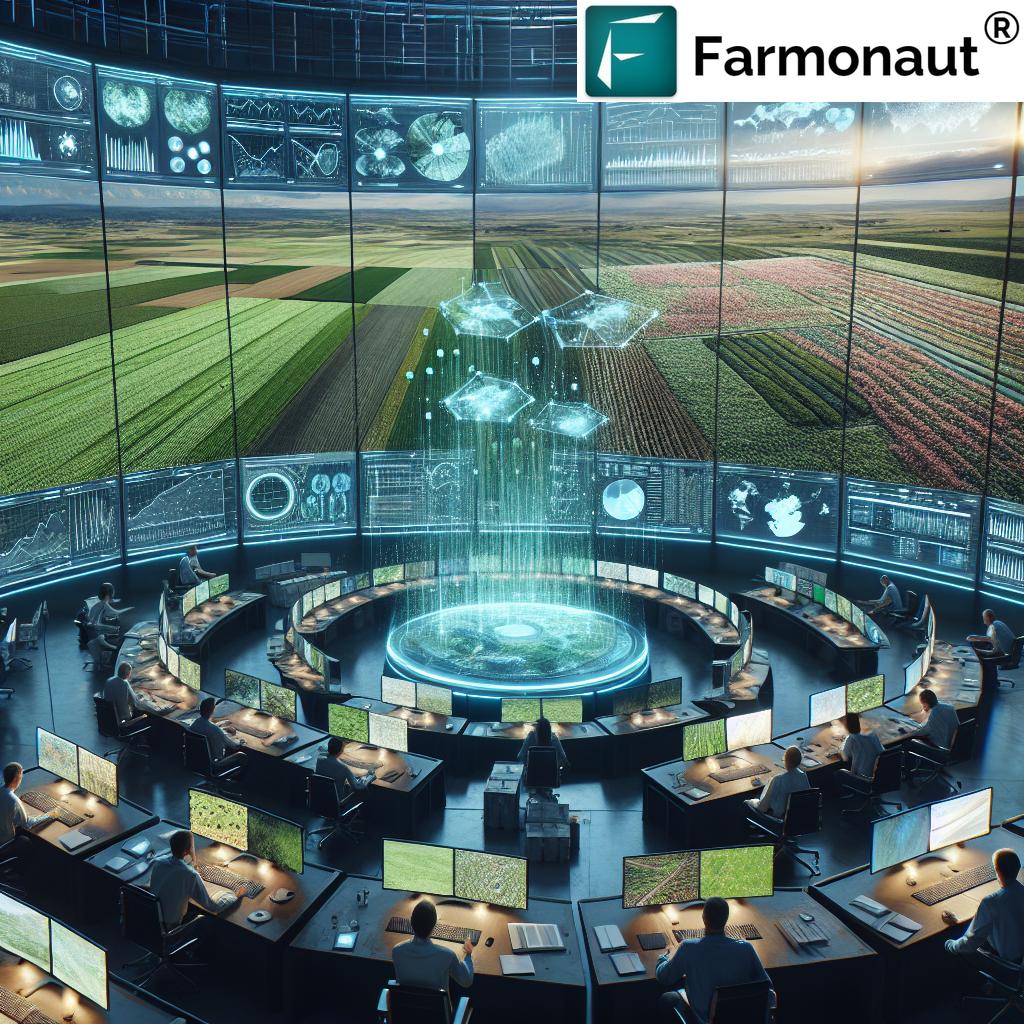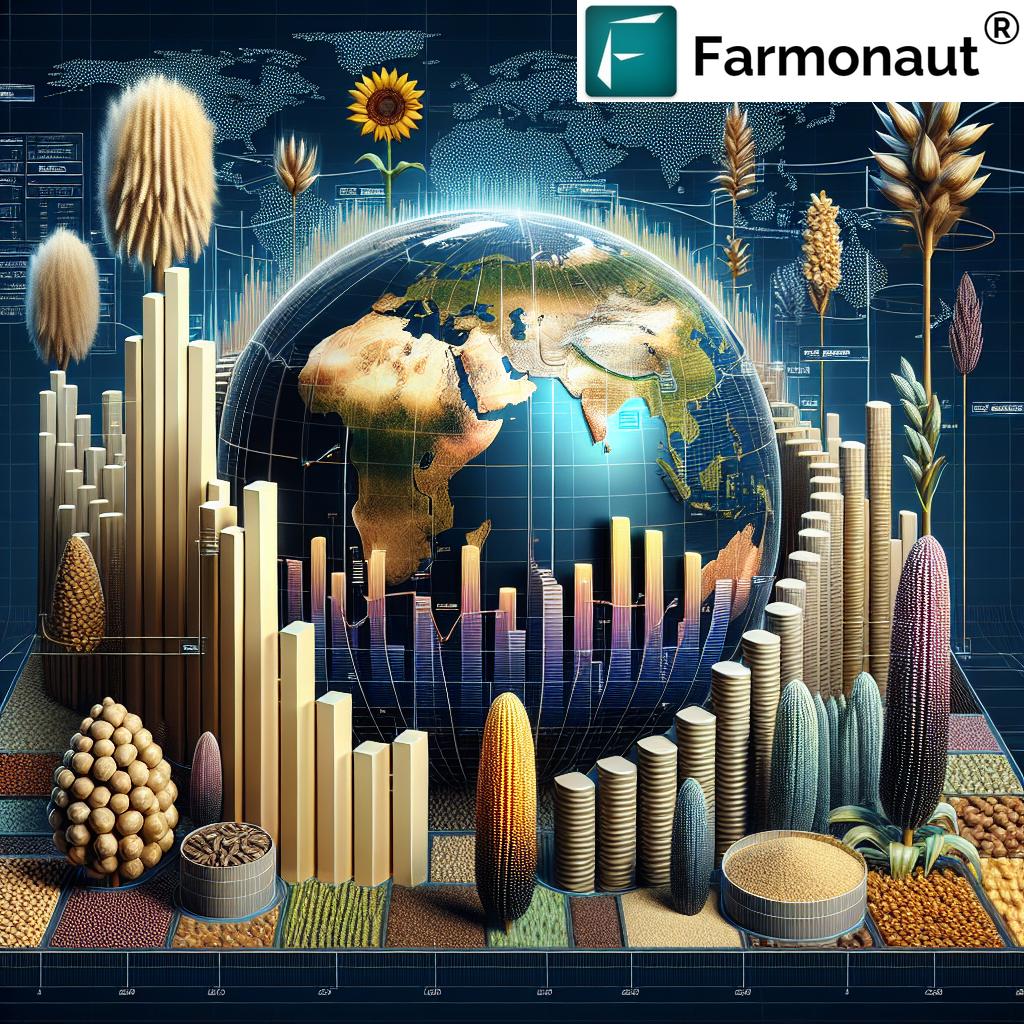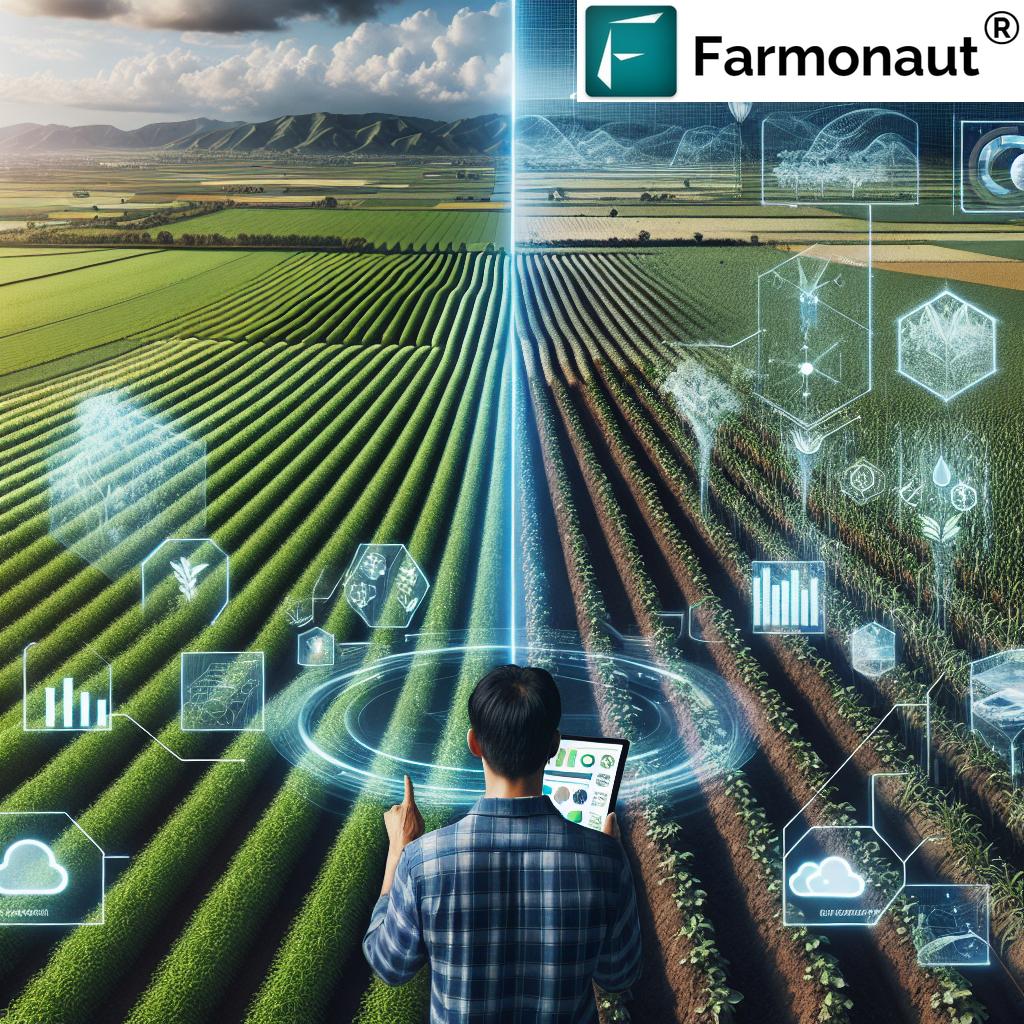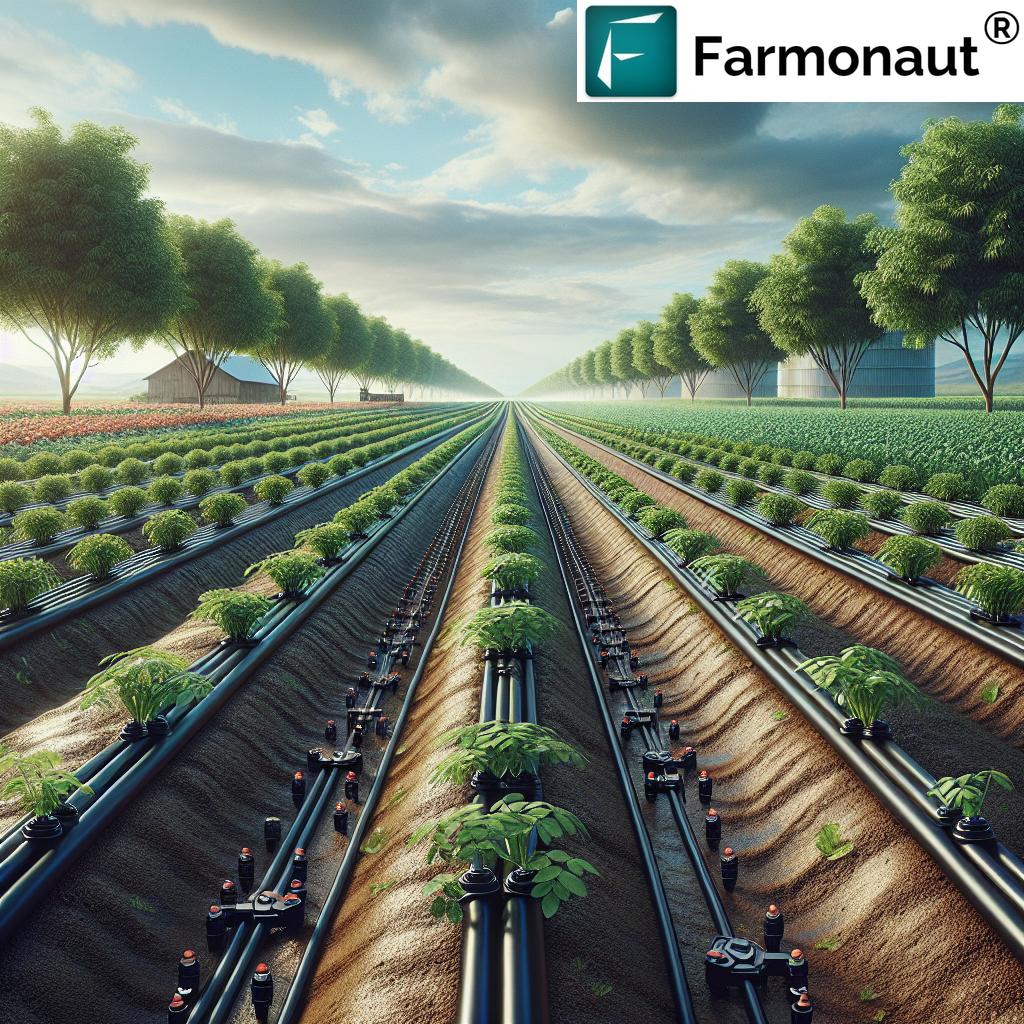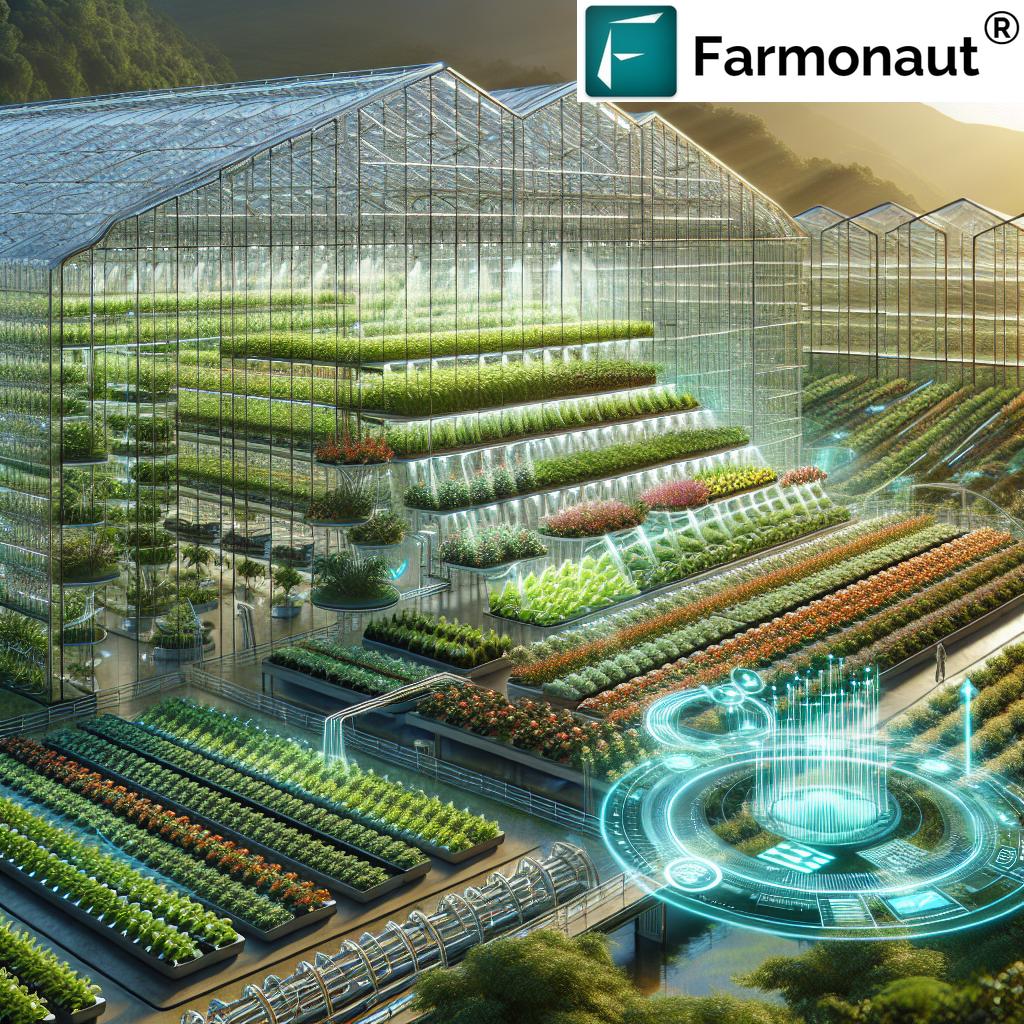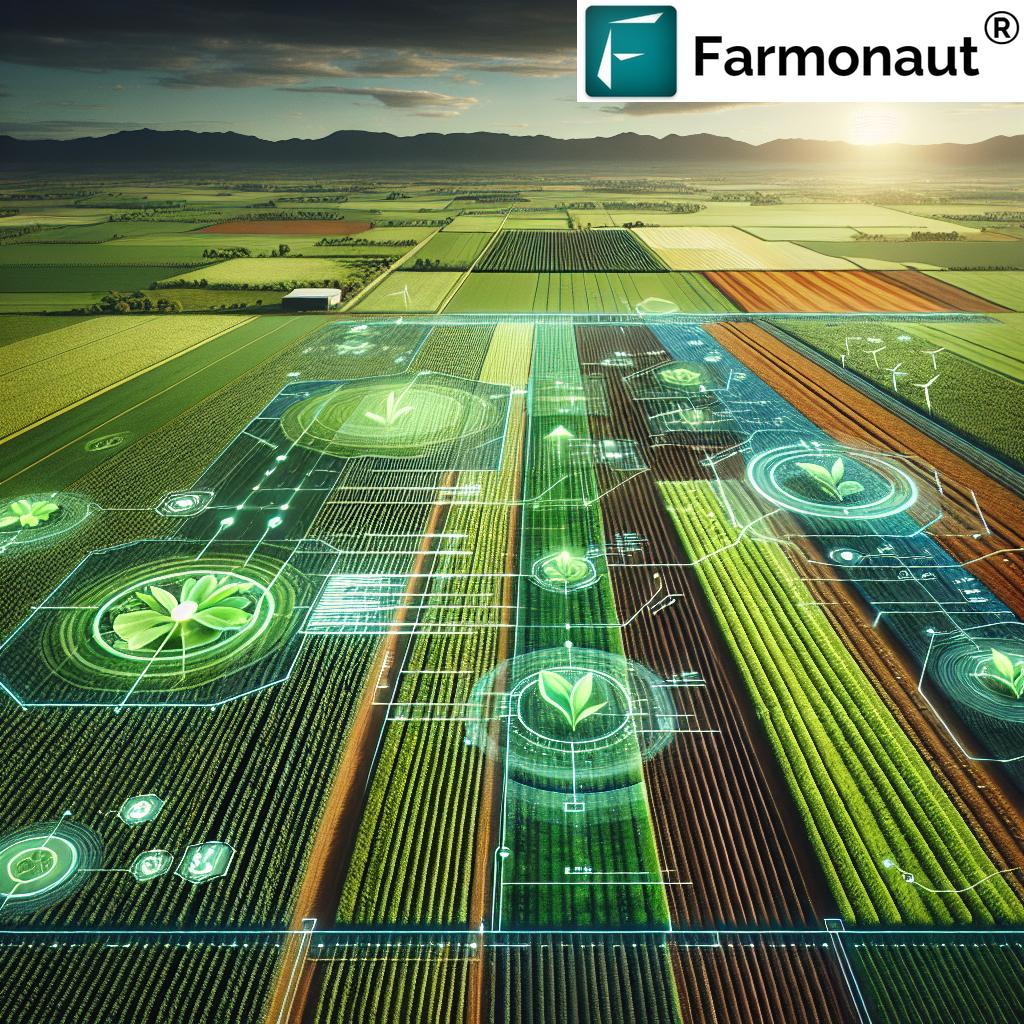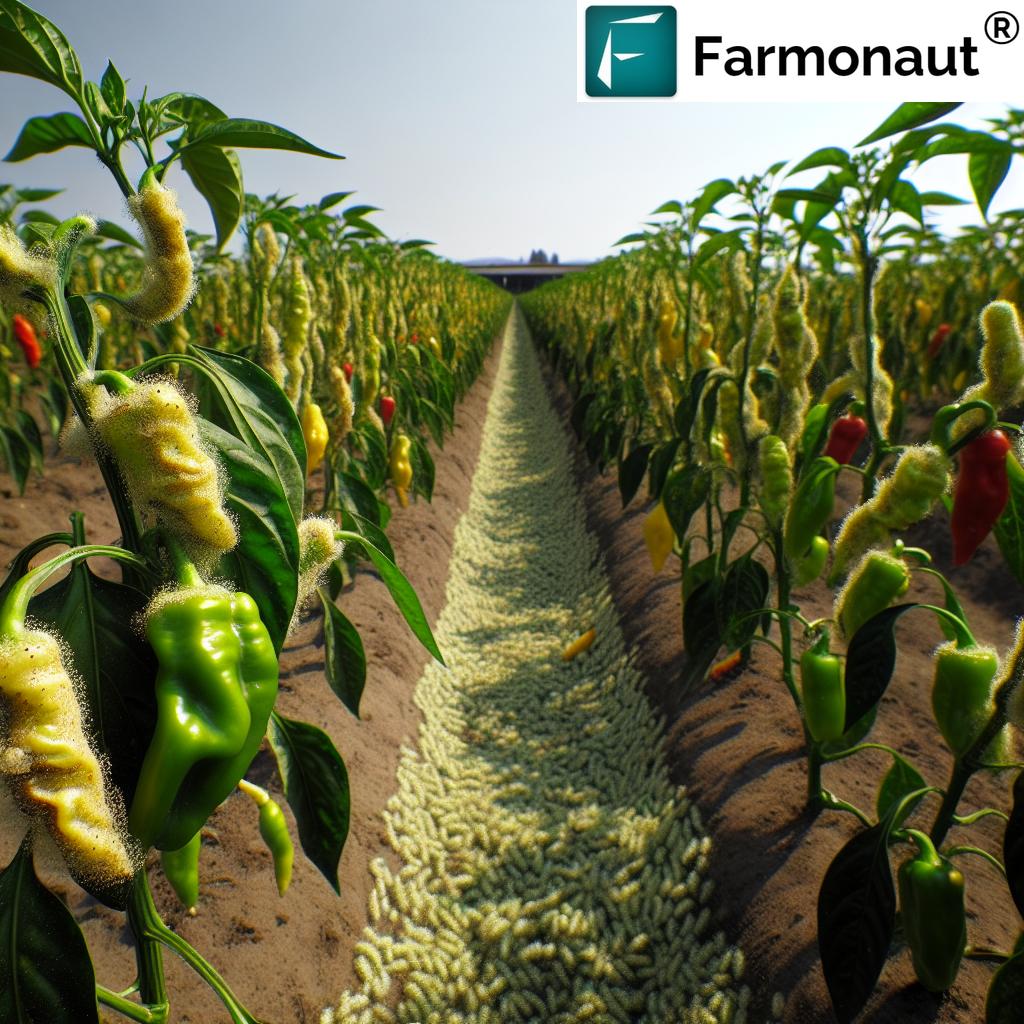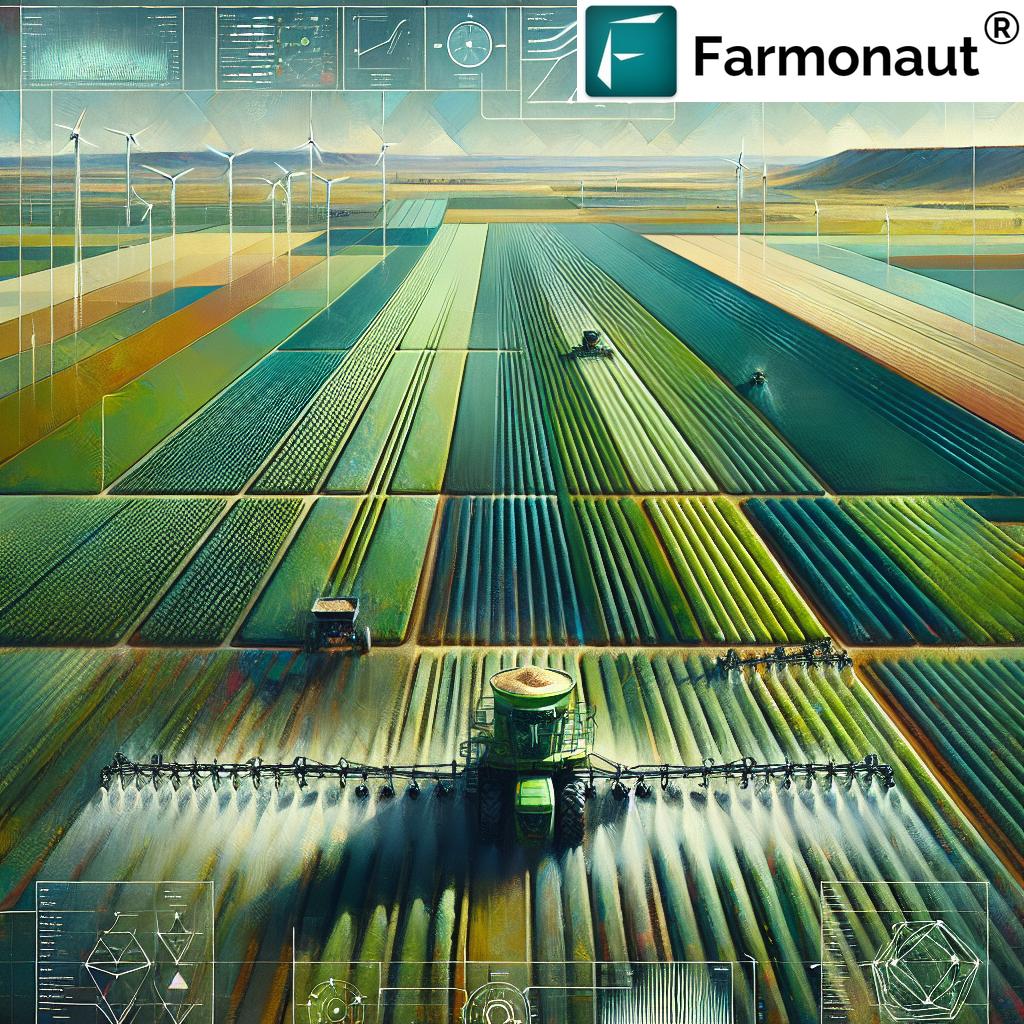Smart Farming Artificial Intelligence: 7 AI Secrets to Huge Yields
“AI-powered smart farming can boost crop yields by up to 30% through precision agriculture and data-driven decisions.”
Introduction: Smart Farming and Artificial Intelligence
In recent years, AI in agriculture has emerged as the driving force behind transforming traditional farming practices into powerful, data-driven smart systems. As global challenges—including climate change, food insecurity, and resource shortages—increase the pressure on our food systems, it’s never been more critical to leverage advanced smart farming technologies to optimize efficiency, profitability, and sustainability across farms of all sizes.
We’re experiencing a new era of farming—precision agriculture solutions that harness artificial intelligence, satellite imagery, IoT sensors, and machine learning. These technologies empower farmers worldwide—whether large agribusinesses or smallholder family farms—to analyze data, monitor crop health, manage resources, and make smarter, faster decisions that drive impressive yields while conserving the environment.
In this comprehensive guide, we’ll reveal the 7 AI secrets for achieving huge yields with smart farming. We’ll discuss practical use cases, the tangible benefits of sustainable agriculture with AI, real challenges, and future outlooks. Let’s begin our journey into the digital transformation of agriculture!
7 AI Secrets to Huge Yields in Smart Farming
Our world’s growing demand for safe, nutritious food makes it imperative to adopt AI-driven solutions that address modern farming’s most complex needs. Here are seven indispensable secrets that AI brings to the table, each reshaping the way we cultivate and manage our crops:
1. Precision Agriculture Solutions: AI-Powered Data-Driven Decisions
Precision agriculture is all about leveraging data and intelligence to fine-tune every farming operation. Through analyzing satellite imagery, ground-based sensors, weather forecasts, and more, AI enables us to monitor crop health, soil moisture, and nutrient deficiencies at the most granular level.
- Farmers can implement targeted fertilization, irrigation, and pest control, minimizing input waste and maximizing yields.
- With AI, we detect early signs of crop diseases and intervene before losses occur.
- Drones equipped with AI models provide rapid, real-time detection of field variability—spotting localized problems that manual scouting often misses.
By using Farmonaut’s satellite-based crop health monitoring tools, both small and large farmers gain affordable access to high-resolution field insights and precision recommendations. This innovation democratizes smart farming technologies and ensures widespread adoption!
2. Autonomous Farming Machinery: Revolutionizing Labor and Efficiency
AI-driven autonomous machinery—from planting robots to harvesting combines—handle repetitive, labor-intensive tasks with unprecedented speed and accuracy. Our fields are now alive with autonomous tractors, robotic weeders, and AI-powered mechanical harvesters that:
- Reduce labor costs by automating cultivation, weeding, and harvesting operations—critical as labor shortages become common worldwide.
- Utilize computer vision algorithms to distinguish crops from weeds, ensuring precise removal without chemicals and promoting sustainable practices.
- Operate with minimal human intervention, greatly improving operational efficiency.
Farmonaut’s fleet and resource management tools empower businesses to optimize vehicle usage and track maintenance of farm machinery, reducing downtime and operational expenses.
3. AI-Powered Irrigation Systems: Conserving Water, Optimizing Growth
Water scarcity is a looming threat to global agriculture—making smart irrigation an absolute necessity. By integrating AI with weather forecasts, soil moisture sensors, and crop-specific water requirements, AI-powered irrigation systems ensure:
- Each plant receives the precise amount of water it needs, reducing waste and improving crop health.
- Immediate detection of leaks or system failures, enabling rapid response and minimizing losses.
- Automated adjustments based on real-time analysis of weather, growth stage, and field variability.
This level of precision irrigation promotes sustainable agriculture, especially important in arid regions or countries facing prolonged droughts. Farmonaut’s platform enables farmers to monitor soil moisture levels via satellite, driving smarter irrigation scheduling and conservation efforts.
Explore the benefits of AI-powered smart farming: Farmonaut’s large-scale farm management tools for plantation-level precision and resource optimization.
“Over 70% of farmers using AI technologies report significant improvements in resource efficiency and sustainability.”
4. Pest and Disease Detection in Crops: Preventing Losses Early with AI
One of the greatest threats to yields is the ever-present risk of pests and diseases. Traditional scouting is time-consuming, and infestations can spread rapidly. Artificial intelligence, through analyzing high-resolution satellite and drone imagery, along with sensor data, enables us to:
- Detect early signs of pest infestations long before they become visible to the naked eye.
- Identify subtle symptoms caused by viruses, fungus, and nutrient deficiencies across large fields rapidly.
- Precisely target treatments—reducing pesticide use, costs, and environmental impact.
With Farmonaut’s real-time crop health monitoring tools, we gain actionable insights for timely interventions and optimal pest management without excess chemicals—driving higher yields and sustainability.
5. Supply Chain Optimization: Streamlining Logistics and Market Access
Once crops are harvested, efficiency shifts to supply chain optimization. Delays, waste, and market mismatches are major contributors to post-harvest losses. AI algorithms help by:
- Predicting market demand for specific produce based on real-time data feeds.
- Optimizing transport, storage, and distribution logistics so that fresh food reaches markets faster.
- Reducing food waste by aligning harvest and shipping schedules to demand trends and shelf life.
Blockchain and AI integration—such as Farmonaut’s blockchain-based product traceability solution—guarantees transparent, secure transactions and builds trust across the agricultural value chain.
6. Data-Driven Advisory Systems: Personalized Recommendations for Every Farm
No two farms—or even fields—are the same. AI-powered advisory systems like Farmonaut’s Jeevn AI analyze vast data—including weather patterns, satellite trends, and soil health—to deliver real-time, crop-specific advice to the farmer’s smartphone or desktop.
- Farmers receive personalized irrigation, fertilization, and crop management tips based on current conditions and growth stages.
- AI analysis helps anticipate climate-related risks, plan timely interventions, and optimize input use.
- Data-driven insights enable small and large farms alike to improve overall productivity, profitability, and sustainability.
With Farmonaut’s integrated platform, even smallholder farmers can compete at the highest levels of agri-efficiency.
7. Sustainable Agriculture with AI: Monitoring, Carbon Footprinting, and Compliance
As the world demands greater accountability for environmental impact, AI technologies empower us to track sustainability metrics and comply with global standards. Today’s best practices include:
- Real-time carbon footprint tracking across entire farm operations to measure and reduce greenhouse gas emissions.
- Automated reporting of water, pesticide, and fertilizer usage, enabling continuous improvement and compliance.
- Transparency in sourcing—utilizing blockchain to guarantee that food is produced and processed ethically.
Farmonaut’s carbon footprinting platform offers easy-to-use tools for agricultural businesses aiming to measure and reduce emissions, while evidencing sustainable practices to buyers and consumers.
Comparing the Impact of AI Applications in Agriculture
Below is a comparison of the most impactful AI technologies transforming modern farming. This table highlights their main applications, estimated improvements, and sustainability outcomes in line with our smart agriculture journey.
| AI Technology/Method | Main Application | Estimated Yield Increase (%) | Estimated Cost Savings (%) | Environmental Impact |
|---|---|---|---|---|
| Precision Agriculture (Data & Satellite Analysis) | Yield Prediction & Optimization | 15-30 | 10-20 | High |
| Autonomous Machinery (Robots/Tractors) | Labor Automation | 10-20 | 20-30 | Medium |
| AI-Powered Irrigation Systems | Water Management | 10-15 | 10-25 | High |
| Pest & Disease Detection (AI Imaging) | Loss Prevention | 10-12 | 10-15 | High |
| Supply Chain Optimization | Logistics & Waste Reduction | 5-10 | 8-15 | Medium |
| Advisory Systems (AI/ML) | Personalized Crop Management | 8-14 | 10-18 | Medium |
| Sustainability Tools (Carbon Tracking) | Environmental Monitoring | 10-18 | 10-20 | High |
Farmonaut: Revolutionizing Precision Agriculture with Smart AI Tools
To bring AI in agriculture within reach for every farmer, Farmonaut delivers unparalleled tools for data-driven farming practices:
- Multispectral satellite imagery for real-time crop health monitoring, soil moisture analysis, and yield optimization.
- The Jeevn AI advisory system provides instant, personalized advice on every aspect of farm management—including resource application, growth stage interventions, and sustainable best practices.
- Blockchain-based traceability—ensuring transparency, transaction security, and food safety from farm to consumer via traceability solutions.
- Fleet management tools to optimize use of autonomous farming machinery across large-scale operations—reducing costs and increasing operational efficiency via fleet management.
- Carbon footprint tracking to help businesses meet sustainability goals, available via Farmonaut’s carbon footprinting platform.
Accessible through Android, iOS, web, and robust API endpoints, Farmonaut’s platform is scalable for both smallholder farms and agribusinesses—making precision agriculture affordable and impactful worldwide. Get started with the Farmonaut API or explore developer docs here.
Moreover, Farmonaut supports a variety of agricultural stakeholders:
- Individual farmers (of all field sizes) for real-time support and yield improvement
- Large agribusinesses for full-scope large-scale farm management, resource, and fleet management
- Government organizations and NGOs for productivity monitoring, yield estimation, and agriculture policy implementation
- Financial institutions for transparent crop loan and insurance verification via satellite-based crop loans and insurance verification
- Corporate clients for secure product sourcing via blockchain traceability
The result? Smart farming AI unlocks equitable, profitable, and eco-friendly agriculture for all—making a direct contribution to solving the food security and sustainability challenges of our time.
The Benefits and Challenges of AI in Agriculture
Benefits of Smart Farming Artificial Intelligence
- Increased Productivity: Advanced AI technologies enable proactive management of crop health, pest threats, and resource allocation—leading to higher yields and superior food quality.
- Resource Efficiency: By optimizing water usage, fertilizer, and pesticide applications, we minimize environmental impact and maximize returns per hectare.
- Cost Reduction: Automation and targeting resource use reduces labor, input, and loss-related costs.
- Data-Driven Decisions: AI delivers actionable, personalized insights—helping us to make informed decisions and boost long-term farm profitability.
- Supply Chain Transparency: Blockchain tracing increases food trust and secures business for responsible producers.
- Sustainability and Compliance: Integrated monitoring of carbon, water, and energy use supports compliance and responsible farming.
Challenges and Considerations for Agricultural AI
- Digital Divide: Many smallholder farmers lack the infrastructure or skills to adopt new data-driven technologies. Solutions must be made affordable, localized, and easy to use.
- Data Privacy & Security: Large-scale data collection must be governed by strong privacy policies and protocols to avoid misuse or breaches.
- High Initial Investment: Advanced equipment, robust internet, or new systems may require upfront costs that are harder for small-scale producers to absorb.
- Skill Gap: Farmer education and training on digital tools is essential for successful adoption.
- System Integration: Ensuring compatibility across various agri-tech systems and existing processes requires open standards and seamless integration.
Through scalable, accessible solutions like Farmonaut, the gap is being narrowed—by making world-class smart farming tools approachable for all, from local smallholders in Africa and India to the world’s largest agribusinesses.
For farmers, businesses, and institutions aiming to future-proof their operations, Farmonaut offers standalone modules for carbon footprinting, traceability, crop loan & insurance verification, as well as robust fleet management—each unlocking focused, measurable improvements.
Recent Developments: The Future of AI in Smart Farming
The landscape of AI in agriculture is evolving at lightning speed:
- National strategies: Countries like China are advancing five-year plans for AI-integrated agriculture to ensure food security and sustainability (Reuters).
- Local innovation: India’s use of high-resolution satellite data and AI is significantly improving yields and household income among millions of smallholder farmers (Reuters).
- New verticals: AI is expanding beyond the field. For example, vineyards are now leveraging AI for disease detection and yield forecasting in specialty crops (AP News).
- Empowering smallholders: Policy-makers and tech firms are now focusing on inclusive AI solutions to ensure that smallholder farmers—responsible for a majority of the world’s food—can participate in the digital revolution (Reuters).
- Societal impact: Innovations in AI are set to radically reshape not just farming, but the future fabric of society itself (Financial Times).
Excitingly, platforms like Farmonaut are at the forefront of this movement—bridging gaps in accessibility, security, and affordability for future-ready, sustainable agriculture.
FAQ: Smart Farming Artificial Intelligence
What is smart farming with artificial intelligence?
Smart farming with artificial intelligence involves the use of AI, advanced data analytics, and other smart technologies (including satellite imagery, sensors, and IoT) to optimize farming practices. This enables farmers to improve yields, resource efficiency, and sustainability while reducing costs and environmental impact.
How does AI increase crop yields in agriculture?
AI analyzes data from various sources—satellites, drones, soil sensors, and weather services—to precisely monitor crop health and identify early signs of stress or disease. AI-driven recommendations help farmers make timely interventions, optimize irrigation and fertilizer applications, and reduce losses—directly boosting yields.
Are precision agriculture solutions affordable for smallholder farmers?
Yes. Innovative platforms like Farmonaut have made precision agriculture solutions available via affordable subscription models and mobile apps, allowing smallholder farmers to access advanced decision-support tools without costly hardware investments.
What security and privacy measures are needed for AI in farming?
It’s essential to implement strong data privacy policies and robust cybersecurity measures when collecting and analyzing sensitive farm data. Transparency and compliance with international privacy standards (such as GDPR) help build trust among farmers and agri-business stakeholders.
How can AI help address climate change in agriculture?
AI can model and predict climate risks, optimize resource use to reduce emissions, and track environmental impact (e.g., carbon footprinting). By enabling sustainable agriculture with AI, these tools help both large farms and smallholders adapt to the challenges posed by climate change.
What are the main challenges for global adoption of smart farming technologies?
Key challenges include digital infrastructure gaps, affordability for smallholder farmers, data privacy concerns, the need for education and training, and ensuring compatibility across different platforms. Platforms like Farmonaut address these hurdles through open, accessible tools and ongoing farmer support.
Farmonaut Subscription Options
Choose the right plan for your field—from single-acre to large enterprise. With Farmonaut’s flexible, scalable subscription options, you can unlock the full potential of data-driven, AI-powered smart farming today:
Conclusion: The Future of Smart Farming Artificial Intelligence
We are in the midst of an agricultural revolution, with smart farming artificial intelligence at its very core. Platforms like Farmonaut democratize high-impact precision agriculture through satellite, AI, and blockchain—empowering farmers to rise to the challenges of food security, sustainability, and profitability.
As technology continues to evolve, every farmer and stakeholder—from smallholder to agribusiness—must embrace data-driven farming practices. Whether it’s boosting yields, optimizing water and resource use, or building sustainable, transparent supply chains, the opportunities for growth have never been greater.
Are you ready to unlock your farm’s potential with today’s AI-powered tools? Explore Farmonaut’s platform, mobile apps, and API solutions to start your smart farming journey now. Together, let’s shape a food-secure, sustainable, and equitable agricultural future.


